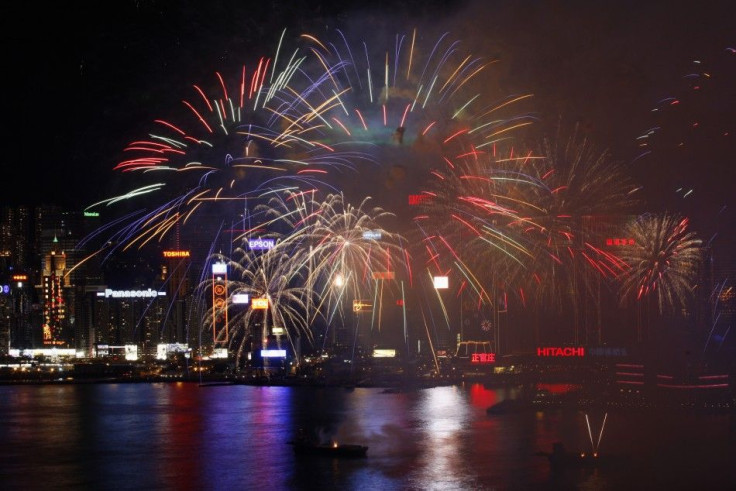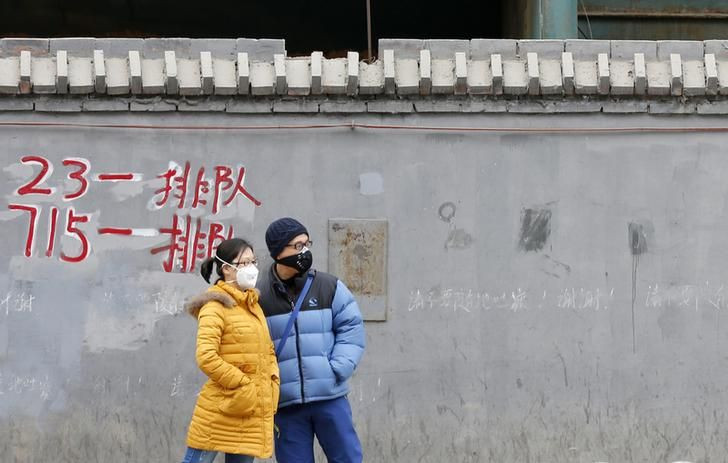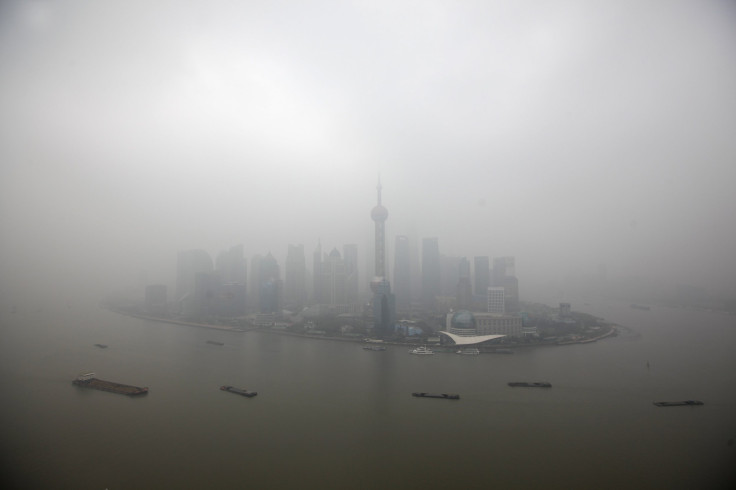Another Smog Problem In China, From Lunar New Year Fireworks

When the clock struck 12 on Feb. 9, the eve of the Lunar New Year, city skylines across China lit up with fireworks in celebration of the start of the nation’s biggest holiday, the Spring Festival. And despite efforts to be aware of the massive pollution the fireworks cause, levels of PM2.5 -- especially toxic airborne particles -- are still dangerously high.
The 15-day holiday is kicked off with the usual extravagant New Year’s fireworks show on the first day, and fireworks continue, if less extravagantly, through the entire duration of the holiday. The extended use of fireworks was bound to increase air pollution, so some health-conscious people found more environmentally friendly alternatives: electronic fireworks.
The China Daily interviewed Liu Yang, from Shijiazhuang, the capital of Hebei province, home to the country’s top-six most polluted cities, who is the mother of a 10-month-old and opted for electronic fireworks this year.
“I can hear the sound and see the sparkling lights, which is enough for me to feel festive,” she said of her decision. Unfortunately, it seems, many of her neighbors did not follow suit.
“The air was so bad that my parents and my son could not walk out the house.”

According to the China Daily, the air pollution index that measures PM2.5 levels sharply increased from 342, an already hazardous reading, to 701, during the height of the fireworks show in Shijiazhuang.
The Shanghai Daily also reported that air pollution statistics were directly affected by the fireworks. PM2.5 pollution levels doubled in Shanghai during the time-honored fireworks show, before coming back down to more normal (and still very bad) levels the following day.

And according to Xinhua, the government made an effort to curb sky-high pollution readings. Official statistics said that the city of Beijing authorized 1,337 firework stands this year compared to last year’s 1,429 and allowed 750,000 cartons of fireworks to be sold, down from 810,000 last year.
These government restrictions may have inspired some to have a cleaner celebration. Xinhua also reported that Taobao, the nation’s biggest online retailer, comparable to eBay, saw a huge sales volume in electronic fireworks ahead of the Lunar New Year, up by 271 percent compared to last year.
Yet, some people think government efforts to curb air pollution through firework restrictions are in vain, citing that fireworks are not really the problem when it comes to the nation’s struggle with air pollutants.
“A large part of pollutants comes from industrial pollution and vehicle emissions. Compared to these, the pollution from the fireworks is limited and only for a short period,” Wu Jinghui, another Shijianzhuang resident, said to the China Daily. “The government needs to strengthen efforts to deal with the main sources instead of banning fireworks.”
The Chinese New Year, some say, is a once-a-year celebration, where fireworks should not be restricted. This is perhaps why, according to one Xinhua report, city sanitation workers could tell traditional fireworks were still preferred this year.
“From the trash, we can see that electronic fireworks are far from popular. The majority still favor traditional ones,” Chen Daofu said in the report.
© Copyright IBTimes 2024. All rights reserved.






















